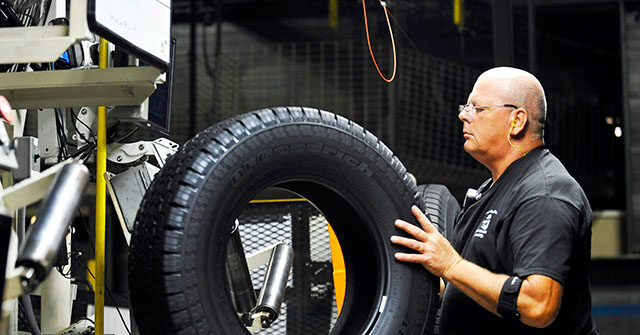The recent closure of the Dunlop tire plant in Tonawanda, New York, owned by Sumitomo Rubber USA, has had significant repercussions, impacting over 1,550 workers and their families in the local community. The closure, which took effect on November 7, has been attributed to the company’s ongoing assessment of its financial status and the increasingly competitive nature of the international tire market. Sumitomo revealed that this difficult decision came after a comprehensive review which ultimately concluded that relocating manufacturing operations overseas would be more beneficial for the company’s sustainability and competitiveness. This transition reflects broader trends in the manufacturing sector where companies prioritize cost-efficiency and production capabilities beyond domestic borders.
The closure of the Dunlop plant represents more than just a loss of jobs; it symbolizes a shift in manufacturing practices that are increasingly moving away from American soil. In a formal statement, Sumitomo expressed empathy for the impact on its workforce, acknowledging the significant emotional and financial burden faced by the employees and their families. The company had attempted to find a buyer to take over operations at the facility but was unsuccessful, which left them with no choice but to close. The Dunlop brand, known for producing tires for various vehicles including passenger cars, trucks, and motorcycles, is now set to see its manufacturing operations shift to more cost-effective locations abroad.
Reactions from the affected workers and the local community reflect a deep sense of loss and concern about the future. Many workers described the news as “horrible,” feeling that the closure constitutes a harsh blow to their livelihoods and those of their families. Individuals have expressed worries not just about losing their jobs but also about the broader implications for the area’s economy, which depends on the employment and local sales generated by such manufacturing facilities. The visual starkness of security personnel at the site underscores the gravity of the situation and the emotional burden it places on the workforce.
This trend is not isolated to the tire industry alone. A parallel situation can be observed with the announcement from Tupperware, which in June declared the impending closure of its last factory in the U.S. Located in Hemingway, South Carolina, the plant, set to shut down permanently by January 14, will lead to the layoffs of about 150 employees. Tupperware similarly highlighted economic factors as motivations for relocating production to Mexico, where labor costs are significantly lower, prompting a strategic shift aimed at maintaining profitability in a competitive market. In both cases, the common element is a corporate drive to mitigate costs in response to global economic pressures.
Both closures bring to the fore the stark reality of manufacturing in the U.S. as companies weigh profit margins with operational costs. The willingness of these firms to uproot their production base illustrates a growing trend where labor costs and market dynamics dictate corporate strategy, leaving American workers in increasingly precarious positions. As firms like Sumitomo and Tupperware move operations abroad, they not only disrupt existing employment but also contribute to a narrative of deindustrialization that has affected various sectors in the American economy.
In conclusion, these recent factory closures serve as critical examples of the ongoing transformations in global manufacturing. The decisions made by corporations are rooted in complex analyses of market conditions that prioritize financial viability over local employment. For the workers impacted by these transitions, the future stands uncertain as they navigate the challenges of unemployment and seek new opportunities amidst shifting economic landscapes. The broader implications reverberate through local communities, raising important questions about the future of manufacturing in the United States and the strategies businesses must employ to adapt to an evolving global economy.

